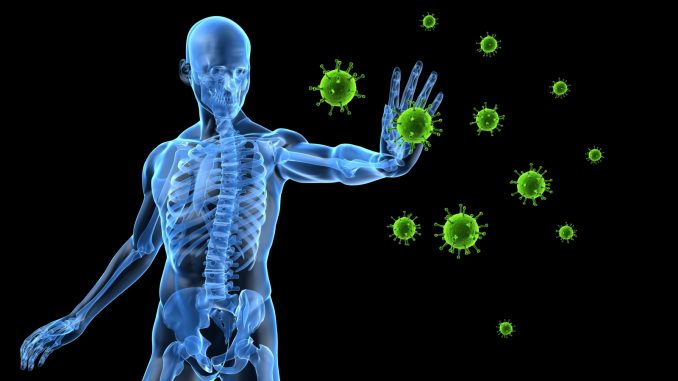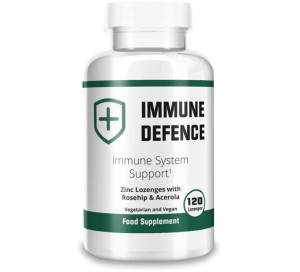
The immune system is the body’s primary defence mechanism against infections, and disturbances in the system can cause disease if the system fails in defence functions (in immunocompromised people), or if the activity is detrimental to the host (as in auto-immune and auto-inflammatory states).
The immune system is a complex network of components functioning to provide host defense. This network consists of immunologic cells and their products (e.g., interleukins and colony-stimulating factors), organs, tissues, complement, and major histocompatibility complex antigens. These components are organized into specific and nonspecific immune systems, the major functional activities of which include antigen presentation and cell-mediated cytotoxicity.
The immune system in its four components T cells, B cells, complement and phagocytes is vital for the defense of the organism against foreign substances or antigens. Elimination of an antigen involves the interaction of the four complements of the immune system with antigen and with each other. The final common pathway is the breakdown of the antigen by the intracellular machinery of the phagocytic cell. The maintenance of the self depends on the integrity of the immune system. Whenever this integrity is breached (by aging, congenital immune deficiency, cytotoxic drugs, irradiation, infiltrative disease) the organism becomes prone to uncontrolled invasion by antigens (viruses, bacteria, fungi, neoplasms) and its survival is threatened.
Read also:
Immune Defence – Zinc Lozenges with Rosehip and Acerola.
 Your immune system needs daily support to stay in good form, to be able to fight off any pathogens trying to enter your system and to witstand the impact of stress on your body and mind. Immune Defence aids your immune system by providing you with a daily dose of zinc and vitamins A, C and E. These soothing, aniseed flavour lozenges dissolve quickly on the tongue, bathing the back of the throat in Zinc ions. No matter if you feel strong and healthy or enfeebled and weak Immune Defence helps provide your body with critical immune-boosting nutrients.
Your immune system needs daily support to stay in good form, to be able to fight off any pathogens trying to enter your system and to witstand the impact of stress on your body and mind. Immune Defence aids your immune system by providing you with a daily dose of zinc and vitamins A, C and E. These soothing, aniseed flavour lozenges dissolve quickly on the tongue, bathing the back of the throat in Zinc ions. No matter if you feel strong and healthy or enfeebled and weak Immune Defence helps provide your body with critical immune-boosting nutrients.
The activation of dendritic cells, necessary for the initiation of primary and secondary immune responses, can be induced by endogenous danger signals – released by tissues undergoing stress, damage or abnormal death – and also by exogenous danger signals elaborated by pathogens. Some endogenous danger signals that recently have been discovered are heat-shock proteins, nucleotides, reactive oxygen intermediates, extracellular-matrix breakdown products, neuromediators and cytokines like the IFNs. We propose that allergy may be initiated by the direct damage of dendritic or other cells by toxic chemicals and allergenic proteases, and suggest that the triggering of danger signal receptors by exogenous pathogen-derived molecules may be more to the advantage of the pathogen than to the host.
Immunosenescence refers to the influence of aging on the immune system. Numerous problems are encountered in studying this topic, the main one being the influence of concomitant disease. Despite the great efforts that have been devoted to research in this field, the results of studies performed to date have not been convincing and, until now, no sound scientific evidence has emerged to show that immunosenescence is clinically significant. The only possible exceptions to this are the discovery of a selective defect in cell-mediated immunity and the reactivation of varicella zoster virus.

Leave a Reply